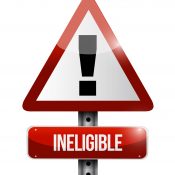“There are many capable people who should be considered by the Biden Administration for nomination as Under Secretary of Commerce for IP, but in my opinion several names stand out above everyone else based on their background and what appears to be a preference on the part of President Biden to appoint those with close ties to the Obama Administration and longstanding ties to the Democratic party.”
 At 12:00pm EST on January 20, 2021, Joe Biden was sworn in as America’s 46th President. Over the next several months he and his staff will be working to fill thousands of positions within the federal government that have become vacant due to resignations. This is normal and expected. At the end of each presidential term all presidential appointees offer their resignation, which can then either be accepted or not at the discretion of the President.
At 12:00pm EST on January 20, 2021, Joe Biden was sworn in as America’s 46th President. Over the next several months he and his staff will be working to fill thousands of positions within the federal government that have become vacant due to resignations. This is normal and expected. At the end of each presidential term all presidential appointees offer their resignation, which can then either be accepted or not at the discretion of the President.
The position of Under Secretary of Commerce for Intellectual Property and Director of the United States Patent and Trademark Office (USPTO), as well as Deputy, is now vacant. Commissioner for Patents Drew Hirshfeld has been vested with the authority to act with the powers of the Under Secretary of Commerce for IP and Director of the USPTO, although he has not been given the title Acting Director. This is almost certainly due to the fact that no one in the federal government can hold a title of Acting head of an agency for more than 270 days.
In our space, the position of Under Secretary and Director of the USPTO is a front-line, top-level position. In the greater political scheme, it is likely we will not have an appointee for many months. President Obama did not nominate David Kappos until June 18 and President Trump did not nominate Andrei Iancu until August 26.
There are many capable people—all realistic, based on party affiliation—who should be considered by the Biden Administration for nomination as Under Secretary of Commerce for IP, but in my opinion several names stand out above everyone else based on their background, ties with the tech sector, and what appears to be a preference on the part of President Biden (at least so far) to appoint those with close ties to the Obama Administration and longstanding ties to the Democratic party.

Bob Stoll
The first name that comes to mind is Bob Stoll, a partner with Faegre Drinker Biddle & Reath and former Commissioner for Patents, who played a pivotal role in the creation and implementation of the America Invents Act (AIA), the signature patent reform during the Obama presidency. Stoll, a long time USPTO executive with great experience testifying on the Hill, also played an important role behind the scenes during America Invents Act (AIA) consideration in both the House and Senate. Stoll and his family are politically well connected; his sister-in-law is on the Federal Circuit appointed by President Obama, his wife (now retired) is a former Chief of Staff on the Hill to Democrats, his brother served as a lawyer on the House Judiciary Committee. Since leaving the USPTO, Stoll has represented various Silicon Valley interests, so while he is a proponent of a strong patent system, he is politically astute and has demonstrated the ability to work with the tech sector. Stoll is also a co-author of the recently published USPTO Transition Document, outlining a variety of recommendations for the Biden Administration relating to USPTO governance.

Russ Slifer
Another name that rises above all others is Russ Slifer, who is a Principal at the Minneapolis-based IP boutique Schwegman, Lundberg & Woessner (see his comments included below). Slifer is a former Deputy Under Secretary of Commerce for Intellectual Property and Deputy Director of the USPTO, a position he held from March 2015 through January 20, 2017. While Deputy Director, he managed all of the day-to-day operations of the USPTO, functioning as the equivalent of a Chief Operating Officer. Prior to joining the USPTO (first as Regional Director of the Rocky Mountain satellite office), he held other leadership positions in the intellectual property industry, spending eight years as Chief Patent Counsel for Micron Technology, and serving as a longtime member of the Board of Directors of the Intellectual Property Owners Association (IPO) and past President of the Association of Corporate Patent Counsel (ACPC). Having served as Chief Patent Counsel, and in leadership positions with IPO and ACPC, Slifer is known and respected by the tech sector and other key constituencies.

Dr. A. Christal Sheppard
The final name to keep an eye on is Dr. A. Christal Sheppard, another co-author of the recently published USPTO Transition Document, who is rumored to be under consideration for the job. Dr. Sheppard holds a Ph.D. in Cellular and Molecular Biology from the University of Michigan, a J.D. from Cornell University Law School. She served as Chief Counsel for patents and trademarks and Chief Counsel for Courts and Competition Policy for the House Judiciary Committee from 2007 to 2011. After a stint on the law faculty at the University of Nebraska, she became the first Director of a satellite Patent and Trademark Office, located in Detroit, Michigan. After leaving the USPTO, Dr. Sheppard joined IPwe, a patent based blockchain startup company founded by Erich Spangenberg, where she served as Executive Vice President for Strategy and Business Development. Dr. Sheppard subsequently returned to Lincoln Nebraska where she is currently a Distinguished Fellow at the Nebraska Governance and Technology Center, and also a member of the AIPLA Legislation Committee.
While it is far too early to tell who is likely to receive serious consideration, as we await President Biden’s nomination, we asked a panel of experts what the profile of the next Director should be. We invited them to offer specific names, as I did above, or to simply describe the ideal candidate from their own perspective. The responses we received appear below, in alphabetical order. Named suggestions are shown in red bolded font.
 Samir Bhavsar, Baker Botts
Samir Bhavsar, Baker Botts
“The ideal candidate for the next Director of the USPTO should bring many years of practical patent and trademark law experience to this position. For example, it is preferable for the next Director to have several years of experience—whether in a law firm, corporation, or other organization—immersed in the day-to-day business aspects of IP. When making IP policy, the next Director should be able to understand the issues facing, and balance the competing views of, stakeholders within and among different technology industries. From a patent law perspective, the next Director will hopefully emphasize providing clarity to practitioners and applicants regarding hot-button topics, such as patent eligible subject matter. Clarity, predictability, and consistency of examination across all USPTO art units is critical to obtaining meaningful patent protection.”
Trevor Copeland , Brinks, Gilson & Lione
, Brinks, Gilson & Lione
“Highly desirable aspects for a USPTO director begin with personal integrity commanding respect among the IP bar. Such a person ideally will have broad experience in one or more of private firm practice, in-house practice, and government service (in the Office, on the bench, or elsewhere). A solid professional reputation provides credibility within the Office and among the stakeholders of the USPTO, including members of the patent and trademark bars, inventors – from solo innovators to those in large corporations, business-owners, and the general public, as well as legislative policy-makers.
S/he should have leadership and organizational skills to manage Office operations effectively, as well as a sharp intellect and the visionary sense to press for high-quality patent examination that produces strong patents. That quality control includes making certain to engineer and enforce rules that respect patent property rights while enabling the Office to analyze applications (and –rarely– granted patents, under strict Constitutional and legislative limits) so as to ensure integrity of the system with regard to novel and non-obvious claims, but acting with appropriate restraint to avoid abuse of process. Legislative acumen will be a plus, if not essential, to push for much-needed clarification regarding patent-eligibility in the law.
Finally, willingness to learn from, and continue positive developments of, prior directors will also be key – as prior successes provide a solid foundation for further improvement and/or innovative next steps. This can be manifested by continuing to engage directly with the public and with Office staff to promote how patents, generated by diverse inventors, drive both economic growth and next-generation technologies – for which the Office should be a valuable conduit, even with its gatekeeper role.”
 Marla Grossman, American Continental Group
Marla Grossman, American Continental Group
“Amid a global pandemic, the USPTO needs a leader to promote strong IP policy globally, now more than ever. With the former Director Iancu as a model, President Biden should nominate someone who understands the importance of IP to innovation and economic development and who will implement policies to provide innovators with quality, timely, and cost-effective patent and trademark examinations. The USPTO Director must continue to forcefully advocate for the development of strong IP systems domestically and abroad.
Regarding specific qualifications and experience, the USPTO Director should possess a thorough knowledge of patent, trademark and copyright law and procedure. She, or he, should have in-depth knowledge of the workings of the USPTO, significant industry experience, and a proven track record in managing a large organization. The Director also must understand the business aspects of IP, the importance of patents, trademarks and copyrights in spurring innovation and economic growth, and the need to balance the views of various industry groups and interested parties.
Finally, the Director must be capable of effectively taking the international stage in the World Intellectual Property Organization, the European Patent Office, the Japan Patent Office, and in other international agencies, and be a strong advocate for U.S. positions on international IP matters. Thus, the Director must be experienced in formulating policy and possess good diplomatic skills. Leadership ability, managerial expertise and political acumen are all necessary attributes for a successful USPTO Director at this time of great challenges and opportunities.”
 Jeff Hardin, InventorRights.com
Jeff Hardin, InventorRights.com
“The Biden administration has a unique opportunity. While the inventor community prays for a great leader, the Biden agenda seeks to root out “unequal barriers to opportunity” by “advancing equity for all”. With the right candidate, we can get both. The inventor community has scars and is watching.
This is a given – the new administration must not roll back progress under former leadership, such as seeking clarity on patent eligibility and continuing a balanced approach to PTAB post-grant proceedings. It is imperative, however, that the future candidate not only scorn efficient infringement and PTAB abuse, but she must resolve it with predictable rules. Repeating history with a big tech proponent will be an administrative failure.
The next USPTO Director also must engage with the inventor community and address their post-grant enforcement concerns. To protect the new American innovation renaissance, the NCEAI is not enough. That spawned from the SUCCESS Act study, but a gaping hole remains – underrepresented inventors clearly identified difficulty with enforcing patents, risk of PTAB invalidations, and efficient infringement as unequal barriers to participating in today’s patent system – Biden’s agenda for the taking. The AIA’s unintended consequences are real, and the USPTO should not neglect them. Any indifference to the voice of inventors will be an administrative failure.
To advance innovation and equity for all, USPTO leadership must commit to securing to inventors the exclusive right to their discoveries, not revoking them at the behest of corporate infringers. Remember, ‘without the inventors, we wouldn’t be here‘”.
 Stephen Kunin, Maier & Maier
Stephen Kunin, Maier & Maier
“I would highly recommend Robert Armitage or Phil Johnson be considered for the next USPTO Director. Both have the requisite skills, knowledge, ability and experience to be great Directors.”
Aaron S. Lukas , Ph.D., Cozen O’Connor
, Ph.D., Cozen O’Connor
“A hallmark of former Director Iancu’s time at the USPTO was an emphasis on greater transparency and predictability for patent applicants and their counsel. Particularly noteworthy were former Director Iancu’s guidance in clarifying subject matter eligibility and the conduct of PTAB proceedings. The Biden administration would be well-served by continuing Director Iancu’s efforts to provide clear guidance to applicants, patent owners and challengers, and perhaps most importantly, patent examiners and administrative patent judges.
I expect the new director to have considerable management experience and to continue the former director’s ultimate goal of issuing high-quality patents. Subject matter eligibility under 101 is likely to remain a hot-button issue, as well as the recent rise in the PTAB’s discretionary denial of IPR petitions. While the former director was seen by many as being too “pro patent,” a focus on patent quality arguably serves both high-tech and pharma companies. “
 Charles R. Macedo, Amster, Rothstein & Ebenstein LLP
Charles R. Macedo, Amster, Rothstein & Ebenstein LLP
“I think the priority should be identifying an excellent administrator who will promote a strong but fair patent system, which history has shown encourages investment and innovation. From an operations and patent policy perspective, Undersecretaries Iancu and Kappos are two of the best administrators the USPTO has seen in recent times. I would welcome their return, or to have someone similar follow in their footsteps.”
Eli Mazour , Harrity & Harrity
, Harrity & Harrity
Sometimes personnel is not policy. Whenever a new president gets elected, the patent community understandably focuses on the selection of the next USPTO director as an event that will determine the administration’s approach towards patents. However, the last twelve years have demonstrated that a USPTO Director is restrained by the political priorities of the White House regardless of their “policy track record” before being nominated.
The approach of the Biden administration towards patents will likely be determined by Senator Chris Coons’ ability and willingness to push it in a pro-patent direction. In describing his plans for working with Biden, he has already publicly indicated interest in prioritizing intellectual property issues. In light of this, the ideal head of the USPTO will have:
1) first-hand knowledge regarding how the USPTO operates;
2) appreciation for how different types of members of the innovation community – technology and resource wise – are impacted by the patent system; and
3) an existing relationship with Sen. Coons that will help them to work together to prioritize patent issues within the Biden administration and Congress.
Philip Warrick, Sen. Coons’ IP counsel and a detailee from the USPTO, seems well suited for the role.
Tom Moga , Dykema
, Dykema
“The USPTO has an ever-expanding, ever-changing role to perform, both domestically and internationally. The director must first have a top-caliber mind. The candidate must demonstrate a complete knowledge of IP backed by leadership and executive skills.
Through discussions with patent examiners and USPTO leadership, I learned long ago that true USPTO leadership means earning the confidence, respect, and trust of the Examining Corps. The ultimate success of the USPTO depends on the director’s ability to unify and inspire the Examining Corps. I have seen many directors come and go. The ability to successfully lead the USPTO as an organization has not been demonstrated by all former directors.
Domestically, the USPTO and our country’s IP system face many challenges. The new director must enthusiastically support the concept of IP as a key driver of economic growth and must demonstrate an unfailing belief that the system of rewards provided by an IP system does work.
Internationally, work needs to be done on our relationship with China. Relationships with nations of Sub-Saharan Africa need to be developed. This area is expected to show growth in the near future and is essentially being ignored. As co-chair of the AIPLA’s Harmonization Committee, I see the need to further harmonize international IP systems. International experience is critical.
A potential candidate for the role is Ms. Sharon Barner currently of Cummins Inc. and former Deputy Director of the USPTO. In addition to helping fulfill important diversity initiatives of the USPTO, Ms. Barner possesses the skills noted above.”
 Adam Mossoff, George Mason University and Senior Fellow, Hudson Institute
Adam Mossoff, George Mason University and Senior Fellow, Hudson Institute
“The USPTO runs one of the primary legal engines that drives the U.S. innovation economy. As a scholar, I’m not situated to recommend a particular person, but I would like to take this opportunity to highlight the features of an ideal USPTO Director. At a minimum, the Director should have experience working with inventors, startups, and companies for whom patents and other intellectual property rights serve as necessary platforms for their business models. Given the size and scope of operations of the USPTO as a federal agency, a Director ideally should have real-world management experience as well, such as serving as patent counsel or general counsel at a company in the innovation industries. But a Director should have more than just a deep working knowledge of the legal and economic details of patents and trademarks, and how to manage a large organization. The Director is the representative of the U.S. patent system—the property rights that have spurred innovations and bridged the gap between the act of invention and the sale of new products and services in the marketplace. Thus, the ideal Director shows in both words and deeds that he or she understands the moral and economic importance of the U.S. patent system as a key contributor to economic growth, new jobs, and a flourishing society. Indeed, the best Directors have done exactly this.”
Kristen S. Ruisi , Venable LLP in New York
, Venable LLP in New York
“The ideal candidate to run the United States Patent and Trademark Office (USPTO) would be someone that has at least 20 years of patent and trademark experience, had a leadership role in a public facing organization, and also has government experience. The next director of the USPTO should be someone that can quickly implement systems and policy change based off of newly enacted legislation. I would also like to have a director that is committed to protecting the integrity of the trademark system, preventing improper activities, such as false use claims, and suspicious and fake specimens, and overall is focused on improving the functioning and uniformity of the USPTO.”
Karen Sebaski , Holwell Shuster & Goldberg
, Holwell Shuster & Goldberg
“As we await the announcement of President Biden’s appointee for USPTO director, in many ways his selection will have big shoes to fill. Outgoing director Andrei Iancu was widely regarded for his strong leadership skills and driving predictable policies and procedures at the USPTO. Iancu’s approach also is widely regarded as pro-patentee. In the current environment, I expect that President Biden will select an appointee with a balanced approach to patent rights. Also timely are initiatives by the USPTO to increase diversity and encourage women and minority inventors to enter and remain active in the patent system. In my view, an appointee who is committed to promoting diversity within the patent (and trademark) system will be well-positioned to take the helm at the USPTO.”
Ahsan Shaikh, McDermott, Will & Emery
McDermott, Will & Emery
“The ideal candidate for Biden’s USPTO appointment should improve upon the improvements made by Former Director Iancu in subject matter eligibility review and continue to create a more diverse and inclusive U.S. patenting ecosystem.
On the diversity and inclusion front, successful examples from Iancu’s tenure include the “Expanding Innovation Hub” (the centralized online platform to make the patent process more accessible to diverse inventors), and the SUCCESS Act highlighting disparities in engagement within the patent system, especially by women inventors. This new candidate will need to continue to build on Iancu’s diversity and inclusion initiatives and take it one-step further. S/he can 1) consider making public patent examiner data with respect to how the gender of the examiner may impact the outcome of patent examination of an inventor based on the inventor’s gender, and 2) provide better tools for companies to assess how their patent filings break down by gender of the inventor(s).
Another success from Director Iancu’s tenure is the January 2019 Subject Matter Eligibility Guidelines, which were bold in their interpretation of case law to provide much needed clarity to patent examiners and applicants on how to assess a claimed invention for patent subject matter eligibility. At the time, subject matter eligibility was commonly raised as the largest challenge facing the US patenting system. While the size of the problem is reduced, the problem still remains – particularly with respect to gaps between judicial interpretation and patent office interpretation of what is considered subject matter eligible. Therefore, the next appointment should look for ways to assist with legislation that would hopefully provide the missing uniformity needed between the law, its interpretation and its implementation.”
 Russell Slifer, Schwegman, Lundberg & Woessner
Russell Slifer, Schwegman, Lundberg & Woessner
“Former USPTO Director Iancu has received many well-deserved accolades for his tenure. From his first day at the agency he passionately advocated for innovators. He worked hard to ensure that the U.S. has a balanced IP system. Director Iancu worked with Congress and did not shy away from necessary reforms in [Section] 101 and [the Patent Trial and Appeal Board]. Will the next Director be as successful? Hopefully, but Director Iancu is a difficult act to follow.
The Intellectual Property Owners Association (IPO), as it does with every new administration, set forth some well-reasoned recommendations for a USPTO Director. IPO believes that basic qualifications would include that the Director be a practicing IP attorney with a minimum of 15 years IP/Patent experience, with at least 5 years’ experience in running a large organization requiring significant managerial and fiscal responsibility. As with Iancu, the new Director must understand the importance of patents and trademarks in spurring innovation and economic growth and be able to balance the views of various industry groups and other interested parties.
The USPTO is a large complex organization that requires strong leadership and management skills. As IPO notes, this includes experience in setting and communicating strategic direction, effective decision-making and execution, user/customer focus, and ability to inspire employees of a large organization.
President Biden’s ambitious Build Back Better plan includes tackling the pandemic, economic recovery, climate change and racial equity. Making significant progress in tackling these complex problems will involve the USPTO. With Senators Coons, Tillis and Durbin’s interest in IP, we should expect more progress in Congress addressing patent eligibility and a re-introduction of a version of the STRONGER Patents act. The Director, as IPO notes, should therefore be experienced in setting policy and have proven diplomacy skills. The Director should possess political acumen and have prior experience in working with government agencies in a highly charged political setting.”
 Jonathan Stroud, Unified Patents
Jonathan Stroud, Unified Patents
“While the current calls for a ‘continuity of leadership’ are certainly unobjectionable on their face, and the next USPTO leadership is well-positioned to build on the excellent messaging and professional bent of the last administration, I would think USPTO Director appointees who take into account the whole U.S. economy—not just the subparts on one side of the v.—would be the best for U.S citizens and the economy as a whole. An understanding of how patent assertion impacts all U.S. business—and not just the business of patent assertion—seems of paramount concern.”
Image Source: Deposit Photos
Image ID:134263480
Copyright:IgorTishenko
This article was updated on January 27 at 9:00am.

![[IPWatchdog Logo]](https://ipwatchdog.com/wp-content/themes/IPWatchdog%20-%202023/assets/images/temp/logo-small@2x.png)

![[Advertisement]](https://ipwatchdog.com/wp-content/uploads/2026/02/Junior-AI-Feb-10-2026-sidebar-CLE-700x500-1.jpg)
![[Advertisement]](https://ipwatchdog.com/wp-content/uploads/2026/02/Anaqua-Feb-12-2026-sidebar-700x500-1.jpg)
![[Advertisement]](https://ipwatchdog.com/wp-content/uploads/2026/02/Ankar-AI-Feb-17-2025-sidebar-700x500-1.jpg)
![[Advertisement]](https://ipwatchdog.com/wp-content/uploads/2025/12/LIVE-2026-sidebar-regular-price-700x500-1.jpg)







![[Advertisement]](https://ipwatchdog.com/wp-content/uploads/2021/12/WEBINAR-336-x-280-px.png)
![[Advertisement]](https://ipwatchdog.com/wp-content/uploads/2021/12/Ad-4-The-Invent-Patent-System™.png)







Join the Discussion
14 comments so far.
Chris Duda
February 18, 2021 09:27 amDr. Kathleen Duda.
The President of the Patent Office Professional Association.
She can rebuild morale among the examining corps amdreally understands the workings of the agency.
Anon
February 3, 2021 06:52 amIt’s February.
Contrasting the new Emperor’s record-setting use of Govern-by-Edict Executive Orders, the absence of movement of both filling the leadership vacuum and tying the patent office into the new cabinet position of chief officer of Science and Technology Policy seems downright derelict.
ipguy
February 2, 2021 10:16 pmIancu was a giant step forward because he was at least a patent litigator. The next USPTO head should be someone who has actually drafted patents, prosecuted applications before the USPTO, and dealt with PTAB judges’ ex parte decisions.
Bruce Berman
January 27, 2021 04:12 pmA strong yes for Adam Mossoff, an energetic champion of IP rights, awareness and free markets, and a Center for Intellectual Property Understanding board member.
Josh Malone
January 27, 2021 03:34 pmIf they want support of inventors they need to sign the Inventor Rights Resolution and own a public record consistent with such. It’s pretty simple. If you cannot endorse these foundational principles you are not qualified.
https://usinventor.org/resolution
mike
January 27, 2021 01:26 pmThe People’s choice would be Josh Malone.
Adam Mossoff too. Or perhaps Philip Warrick of Senator Coons office.
We just need to make sure there is no “group think”, so USPTO folks like Branden Ritchie and Jamie Simpson are out. Also, no favoritism to Big Tech or anyone who supported the disastrous AIA, so Bob Stoll is out, and Robert Armitage is out. Anyone related to Issa, Goodlatte, Smith, Leahy.
Anon
January 27, 2021 01:21 pmI would rather see Mossoff on the CAFC.
Bruce Berman
January 27, 2021 01:15 pmRuss Slifer has the management experience for USPTO Director, having served as Deputy Under Secretary of Commerce for Intellectual Property and Deputy Director of the USPTO. He also has technology industry experience, breadth and balance. He would be an excellent choice. I hope the Biden Administration is listening.
Model 101
January 27, 2021 10:58 amWhat about Mossoff…guy has no skin in the game. Also smart…honest…tells it like it is. Big Tech will run for covet.
John White
January 27, 2021 10:12 amI would endorse anyone on Gene’s list plus Sharon Barner. They need to know enough to run the PTO plus some policy chops. Plus, they need to believe in the product!
Eileen McDermott
January 27, 2021 08:55 am@Mike, you’re correct – I missed that and have fixed it.
Mike
January 27, 2021 07:50 amIt’s “Democratic Party,” not “Democrat Party.” The latter is an improper use of a noun in place of an adjective intended as an epithet or used incorrectly by people with bad grammar.
https://en.wikipedia.org/wiki/Democrat_Party_(epithet)
don’t hold your breath
January 27, 2021 07:28 amAnon, Someone from your list seems much more likely.
Pro Say
January 26, 2021 10:01 pmFor the good of American innovation, here’s who SHOULD NOT be the next Director:
Anyone who has ever worked for, represented, or accepted money — for any reason — from any of the innovation-stealing Big Tech FAANG cabal:
Facebook.
Amazon.
Apple.
Netflix.
Google (Alphabet).
Ever.